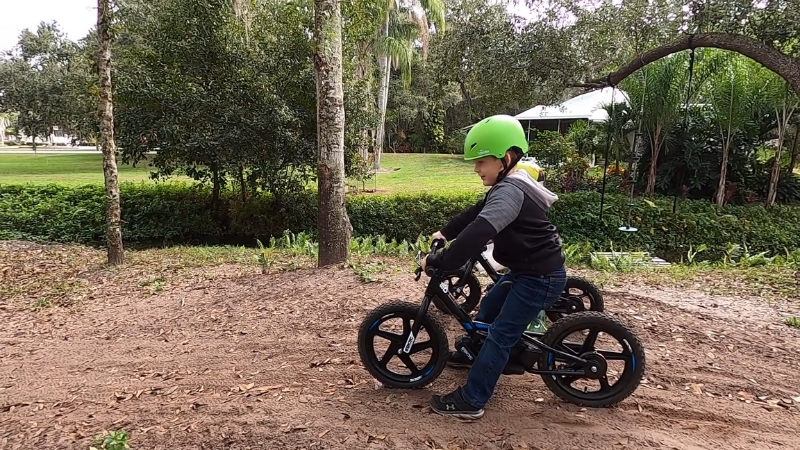Bonking, often dreaded by cyclists and endurance athletes, is a state of extreme physical exhaustion. When your muscles run out of glycogen, you experience an overwhelming sense of fatigue, often accompanied by symptoms like dizziness, shaking hands, and cognitive impairment.
If you’ve ever felt this way during a ride, you know how debilitating it can be. Let’s talk about how to bounce back quickly and get back on track.
Table of Contents
ToggleQuick Recovery Steps
1. Hydrate Immediately
After a ride, prioritize hydration. During intense exercise, you lose a significant amount of fluids through sweat. Replenishing those lost fluids is essential.
I recommend drinking water combined with electrolyte solutions to restore balance and help your muscles recover.
2. Refuel with Carbohydrates and Protein
Your muscles need glycogen, and the fastest way to replenish those stores is by consuming carbohydrates. Pairing carbs with protein can also aid muscle repair. Some quick options include:
- Pasta with chicken
- Peanut butter sandwich
- Smoothie with fruit and protein powder
3. Rest is Crucial
Give your body time to repair. A nap or simply lying down for a while can make a big difference in your recovery. Rest helps your muscles to heal and your energy levels to rebound. Also, learn how to draft on a road bike, which can save you lots of energy during biking.
Replenishment of Glycogen Stores

Rest allows the body to replenish its depleted glycogen stores, which are essential for energy. Without adequate rest, the body cannot effectively restore these energy reserves, leading to prolonged fatigue and decreased performance.
Immune System Recovery
Rest aids in the recovery of the immune system, which can be suppressed due to the stress of bonking. Adequate rest helps to restore immune function, reducing the risk of illness and allowing for quicker overall recovery.
Physical and Mental Recovery
Taking time to rest helps in both physical and mental recovery. Physical rest allows muscles to repair and recover, while mental rest helps alleviate the psychological stress and fatigue associated with bonking, leading to a more holistic recovery.
4. Avoid Alcohol
It might be tempting to reach for a cold beer after a ride, but alcohol can further dehydrate you and impede muscle recovery. Save the celebration for after you’ve rehydrated and refueled properly.
5. Reflect on the Ride
Take a moment to think about what led to bonking. Were you adequately hydrated? Did you consume enough calories? Gravel bikes are usually more equipped than other types, so carrying extra water is not an issue.
Understanding what went wrong can help you avoid making the same mistakes in the future. Keep a training log to track your nutrition and hydration strategies.
Bonking Meaning

Bonking happens when your body depletes its glycogen stores, the primary source of energy for muscles during intense exercise.
Without glycogen, your body struggles to function, leading to severe physical and mental fatigue.
Symptoms
- Extreme weakness
- Nausea
- Poor coordination
- Shaking hands
- Dizziness
- Confusion and inability to focus
According to The Physiological Socitey, glycogen, a form of stored glucose, is crucial for maintaining both physical and mental energy levels. When the body depletes its glycogen stores, it struggles to produce sufficient ATP (adenosine triphosphate), which is the primary energy carrier in cells.
This deficit can result in significant physical fatigue as muscles lack the necessary energy to function efficiently. Additionally, glycogen is stored in the liver and, when these stores are compromised, it leads to a drop in blood glucose levels, causing hypoglycemia.
This condition impairs brain function, leading to mental fatigue and reduced cognitive performance. Moreover, during prolonged exercise, the depletion of muscle glycogen is a well-known factor contributing to peripheral fatigue.
The brain also has glycogen reserves, primarily in astrocytes, and reduced brain glycogen can lead to central fatigue, further impairing mental function.
Consequences of Bonking
Bonking isn’t just a temporary setback; it can have lasting effects. Frequent bonking can lead to muscle loss, immune suppression, hormonal imbalances, and disrupted training schedules.
It’s crucial to address it promptly and take steps to prevent it in the future. It can happen to anyone, no matter if you are on a gravel or cyclocross bike.
Preventing Future Bonking

1. Develop a Nutritional Plan
Before setting out on a ride, ensure you have a solid nutritional plan. This includes pre-ride meals rich in carbohydrates and balanced with protein and fats.
2. Fine-Tune Fuel Intake
During your ride, stay on top of your nutrition. Carry energy gels, bars, or snacks that are easy to consume on the go. Regularly consuming small amounts of carbohydrates can prevent glycogen depletion.
3. Hydrate Consistently

Stay hydrated throughout your ride. Drinking small amounts regularly is better than waiting until you feel thirsty. Electrolyte drinks can be particularly helpful in maintaining the balance of fluids in your body.
4. Pacing and Training
Proper pacing during your ride can help manage energy levels more effectively. Additionally, incorporating controlled glycogen depletion during training can enhance your body’s ability to store and use glycogen efficiently, ultimately improving your performance. Also, the importance of domestique is not appreciated enough, as he can help you rest and recharge during the race.
Potential Benefits of Glycogen Depletion
When done carefully, training that includes periods of glycogen depletion can help your body adapt to using glycogen more efficiently and increase fat metabolism. However, this should be approached cautiously to avoid negative impacts.
According to Pim Knuiman, training that includes periods of glycogen depletion can significantly enhance your body’s metabolic adaptations. When muscle glycogen stores are low, your body is forced to rely more on fat for energy.
This process not only improves fat metabolism but also stimulates the liver to create new glucose from non-carbohydrate sources through gluconeogenesis. Moreover, post-exercise recovery results in a greater synthesis and storage of glycogen.
These adaptations collectively improve the efficiency of glycogen use and increase endurance performance.
Immediate Relief Tips
If you start to feel the symptoms of bonking, there are a few things you can do for quick relief:
- Slow down or stop to give your body a chance to catch up.
- Consume simple carbohydrates like a sports drink or an energy gel.
- Rest briefly to allow your body to recover.
Long-term Effects of Frequent Bonking
Ignoring the signs and frequently experiencing bonking can lead to severe health issues such as immune suppression, hormonal changes, and decreased bone density.
It’s essential to manage and address bonking promptly to maintain your health and performance levels.
Final Thoughts
Bonking is a challenging experience, but with the right strategies, you can recover quickly and prevent it from happening again. Hydration, proper nutrition, and rest are your best allies in the fight against bonking.
Reflect on your experiences and fine-tune your training and nutritional plans, and you can improve your performance and enjoy your rides to the fullest.
Related Posts:
- What Cyclists Should Eat After Rides to Help Muscles…
- How to Take Off Bike Pedals Easily and Quickly -…
- Red Bull Rampage 2024 - World’s Top Freeriders Ready…
- What Is the Maximum Top Speed of a 400cc Motorcycle?
- How Do Different Brands Compare in 300CC Motorcycle…
- How Much Does a Yamaha Dirt Bike Cost? Top Models and Prices








